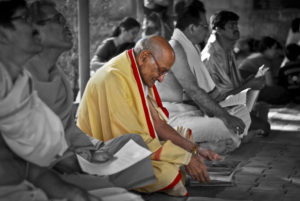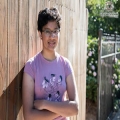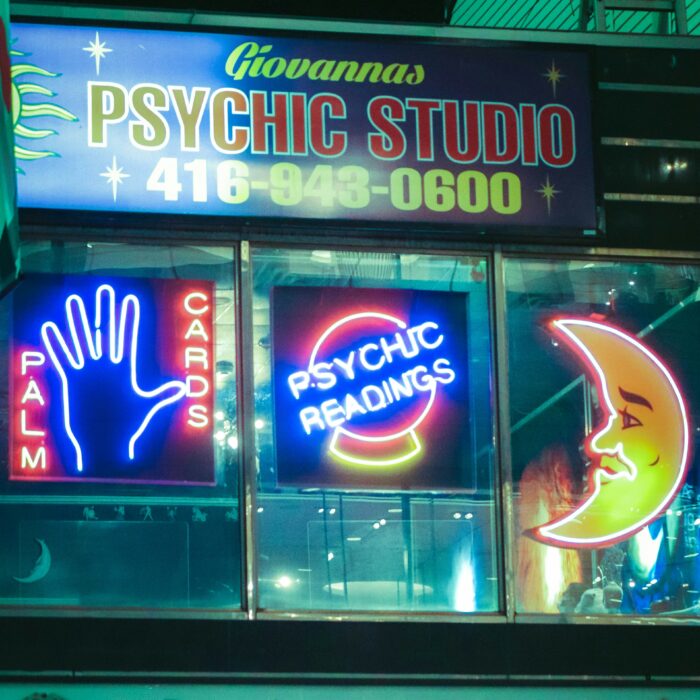You have no items in your cart. Want to get some nice things?
Go shopping
On the last day of October in 2014, a Friday, I had two remaining grandparents. On the first day of November, a Saturday, I had one. My grandparents lived with my aunt and uncle in a little village called Hale Kesare, just outside Mysore. My grandfather took his afternoon nap as usual, while my aunt and uncle had gone to the store. My grandmother heard movement, and went into the bedroom to see whether he’d woken up. He was folding the bedsheet he used to cover himself.
“Are Gita and Ronnie back?” he asked.
“They’ll be back soon,” she said.
He placed the folded sheet neatly at the foot of the bed and sat down on its edge. Then he fell backward.
I have heard these details repeated so many times that I can tell them as if I was there.
*
When my phone rang early on November 1, 2014, and I saw it was my father, I stabbed at the buttons until it was quiet, thinking bleary, half-formulated thoughts about Saturdays and sleep. For the first time in my four years at college, I had no finals this term. I’d be home tomorrow; what on earth was so urgent? I called back a few hours later, after I’d woken and brushed my teeth. The house was still quiet. Kat, Kori, Kori’s boyfriend, and a friend I had staying in the spare room for a couple of nights, were all still asleep.
He must have said something like, “Ruki, Appa passed away today.” I must have responded in shock. After I hung up, I sat on a corner of the couch in the living room and allowed the green of the yard to blur behind my tears. I grew up in Chennai, almost five hundred kilometers away from Mysore. I saw Appa regularly enough to know some of his habits, the way he chewed his chapattis meditatively, how much he loved crosswords, Sudoku and any other puzzle he could get his hands on. I knew how avidly he watched cricket, whether India was playing or not, whether it was test, one-day or T20. I knew that the best way to make him proud was to score the highest marks on a test. These details seemed like facts, trivia. It was a shock to know that Appa was gone. But his death reminded me more that my family was shrinking, and that we’re all so far apart.
Although my house was as full as it could be, I felt alone. I could count the number of southeast Asian students at Augustana College on two hands. Rock Island, Illinois is one hundred and sixty six miles from my parents’ house in the Chicago suburbs. If I couldn’t be with my family, I wanted brown faces, some iota of familiarity.
When I heard Kori’s boyfriend coming down the stairs (they creaked more loudly under his weight than either of my roommates), I started for my room. We met awkwardly at the bottom of the stairs and he asked if I was okay. I mumbled something and brushed past, reaching the darkness of my room, sitting on the edge of my bed, putting my head in my hands to block out everyone else.
Later, I heard him telling Kori, “Go ask Ruki if she’s okay. I think something’s wrong.”
My heart swelled a little. I’d always liked Kori’s boyfriend.
Kori came, Kori asked, Kori gave me a tight hug.
Kori must have told Kat, for Kat gave me a hug too.
I told my friend, and she sat with me on the edge of my bed, one arm around my shoulders and let me cry.
I felt slightly less alone, but only slightly. None of them knew the slightest bit about Appa. They sympathized with the abstract idea of a grandfather’s death. Not my grandfather’s death. I felt mildly ungrateful for thinking this.
*
Later that afternoon, I sat in the library’s fourth-floor computer lab, staring at a cursor blinking on a blank page. My friend was meeting a former professor, I wanted to write, and I wanted to allow Kori to have her weekend with her boyfriend without having to tiptoe around my grief. Outside the window, bare branches waved. Behind me, Old Main’s dome towered from the opposite side of the quad. I wanted to remember Appa, but I couldn’t form memories into cohesive thoughts. People were chattering around me, but it wasn’t the words that intruded; it was the sounds. Nasalized vowels. Rolled r’s. They seemed to widen the distance between me and my family. I wanted to go home.
I stared at the screen and waited for my phone to ring. My father had told me he’d call back when things were settled.
At the first buzz, I hurried out of the lab to a secluded spot under the stairs. It was my mother. My father was flying out that afternoon.
“Should I come home?” I asked.
“You have a show tonight, don’t you?” my mother said.
“Yeah, but they can do it without me. It’ll be fine.”
“You won’t be back before Dad flies out,” she said. “And you’re coming home tomorrow anyway.”
“I know,” I said. “But will you be okay?”
“I’ll be fine.”
For some reason, I couldn’t tell my mother that I wasn’t sure I’d be fine. I knew she’d say I would be coming home the next day. But I couldn’t quite articulate the need to be with someone who understood not just the void of a missing relative, but also the void of dislocation. My friend helped fill those voids, but only a little. We talked about other things. I could not tell stories about my grandfather to someone who didn’t already know them.
“How are you going to do the show tonight?” she asked at some point in the afternoon.
“I don’t know,” I said. “I’ll do it.”
Although I loved my theatre group and the show we’d written and directed, that night’s performance sat in front of me like a fathomless body of water blocking my way home.
I arrived early for call and sat, deflated, while the rest of the cast wandered across the stage, running lines, stretching, practicing bits of difficult blocking or choreography.
“Are you okay?” someone asked. I wasn’t usually this quiet.
I shook my head. “My grandfather passed away this morning.”
The entire cast enfolded me in a hug.
I closed my eyes for a moment, grateful for their love. I was equally grateful when they let go and returned to their practicing, leaving me alone again. I needed to keep myself present in the black box theatre with its scarred floor and cushioned red folding chairs. It was the only way I would be able to perform.
We had written a series of thirty two-minute plays, to be performed in a random order chosen by the audience. When I was in a play, things seemed to be going as usual. Occasionally, part of my consciousness would detach, watching my body move, my throat flex, projecting my voice with far more energy than I felt. When I was sitting on the sidelines, I wondered how this was the best way to honor Appa, when there were people swearing and simulating sex and doing things that would have made him think his granddaughter had gone to some hellhole with no morals. Perhaps, I thought, now that he was somewhere else, he could see the joy that performing brought me and perhaps that was enough to honor him – to do something I loved doing. Deep down, I wasn’t entirely convinced. My grandfather was always proudest of academic accomplishments. And here I was on this stage, with no exams coming up, doing a show near which I’d never have brought him.
The last play called was one I’d written about the addictive nature of being a part of this theatre group. It ended with the cast carrying me offstage, chanting, “One of us.” That night, a part of me felt like leaping out of their arms and running. I didn’t want to be one of them. I wasn’t one of them.
*
I thought this sense of isolation would fade once I returned home. Finally, I was with someone who knew Appa. But, as my mother and I wandered around the suddenly echoing house, a faint feeling of loneliness pulsed in our every move.
It had been different with her parents.
Paati’s ashes had already been scattered by the time my father and I arrived (my mother had flown the day we got the news), but I was there for some of the pujas, the endless comings and goings of family from in town and out.
All of us were in Chennai again when Thatha died. My mother, an aunt from Bahrain, my six-year-old cousin and I already in town for a vacation, my father and my uncle summoned from the US when his kidneys started to fail. I saw Thatha’s body in the hospital, dressed in a starched, cream-colored veshti with a gold border, which he’d never have worn on an ordinary day. We cried, we felt his loss, but we laughed too. We ate, we played carom to entertain my cousin, we enjoyed, in a way, the rarity of our family being in the same room when we were usually in three separate countries.
The sadness and sweetness of mourning would have been more pronounced if we were in Hale Kesare to mourn Appa. I had turned twenty-one three days before he passed away. Someone would have bought sweets or a cake. My father’s older sister, who is diabetic, would have eaten a few bites too many and would have been scolded by their younger sister for not managing her sugar. Someone would have suggested a game of Scrabble, Appa’s favorite. We’d have spent some time debating whether or not we could use two-letter words. My father would have said we couldn’t, that aa and qi can’t be real words. Appa and my aunts always say that if they’re in the Scrabble dictionary, they’ve got to be real. All of us would have been in the same room for the first time since 2008. All of us except Appa.
*
It is the small things that reinforce the sudden absence of a member of the family, that make us truly accept the finality of death. There is something missing from the daily routine that is as final as the sight of a flaming funeral pyre. The newspapers sitting on the coffee table, nearly unread. Watching TV and being able to hear, perfectly well, why Jo-Wilfried Tsonga lost a point. One pillow and one sheet on the bed where there used to be two. Sitting down around the dining table for our evening cup of chai without Appa at the head of the table, his array of snacks set out before him on a steel plate. There is something added to the daily routine. Appa’s picture in the shrine, hung with a string of jasmine.
I experienced none of this. I still haven’t. Perhaps this is why my grief, unmoored, attached itself to my physical distance from my family.
For all I know, Appa might still be in the house in Hale Kesare, pottering around in his banian and pajamas, or perhaps an oversized grey t-shirt emblazoned with something like “I Heart Grandpa,” a gift from my cousins who were born and raised here in the United States. His wavy hair neatly combed, his head tilted back as he sits, one knee crossed over the other, holding the main section of The Hindu in front of his nose, peering through his bifocals at the clue for 13 Down. He might be sitting in front of the TV, exhorting the cricketers on the screen, calling them mada sambranis when they drop an easy catch or confuse an inswinger with an outswinger.
I know that he is not. But I find it difficult to mourn long-distance.
Until I have stayed in the house in Hale Kesare without his presence, I will continue to catch myself thinking of him alive. Three years after his death, I have, intellectually, understood that, when I return, Appa will not be there to receive me. The sting of the unread papers will not be as sharp as it would have been in 2014. But seeing them will still sting a little and, only then, will my mourning be complete.

About Rukmini Girish
Rukmini Girish (she/her) is a writer, performer and arts administrator who grew up in Chennai, India and lives in Chicago, USA. Rukmini is a member of ArtEquity's 2022-23 BIPOC Leadership Circle. She has also received fellowships from Lambda Literary (playwriting) and Luminarts (creative writing). Her nonfiction has appeared in Essay Daily, Punctuate and Chaleur Magazine, and she's performed with 2nd Story, Definition Theatre and Piven Theatre Workshop.
- Web |
- More Posts(2)




Beautiful and eloquent, this piece. And so real. Great to read this Ruki!
This piece has moved me to tears. Human experience is so complicated, but how lucky are we to find voices, every once in a while, that help us identify with the joy and pain that we all feel. Can’t wait to read more from you, Ruki.